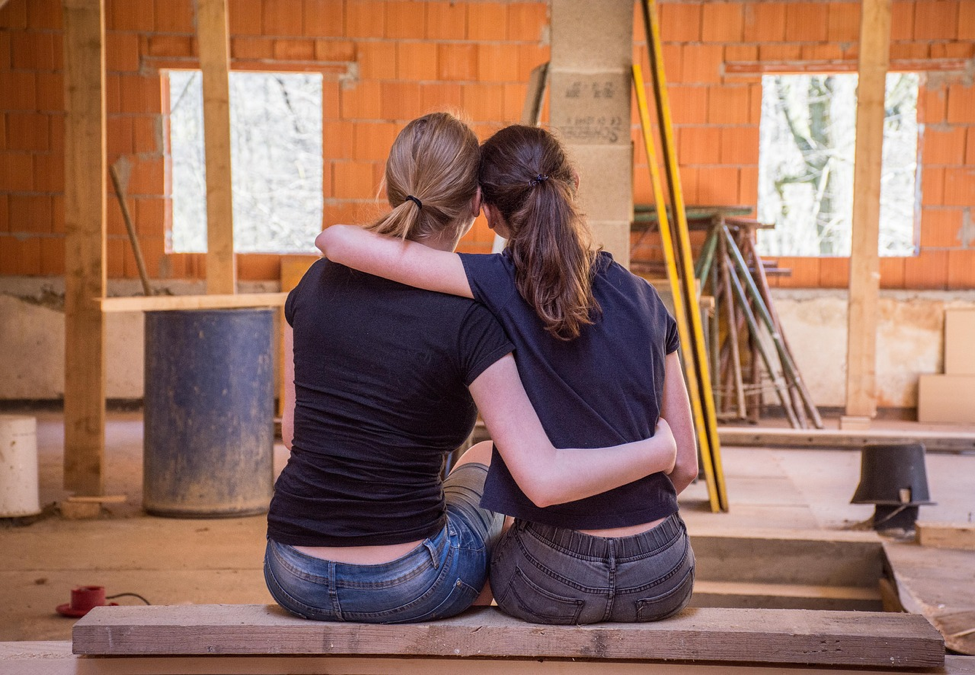 In the past, we’ve talked about how you can help someone who is in the midst of battling breast cancer(opens in a new tab). It’s amazing how simple things like cooking a meal or sending a card can really make a difference in the life of someone who is undergoing treatment. In this article, however, we thought it would be nice to give some advice on how to be a friend when someone is newly diagnosed with breast cancer. After all, while a battle with breast cancer is certainly challenging, the initial shock of being diagnosed is downright difficult. Many times, we are quick to jump in and say, “Everything's going to be fine” out of the kindness of our hearts. But, that’s not necessarily true or helpful. Keep reading to discover 3 powerful ways you can help someone who is coping with a new cancer diagnosis.
In the past, we’ve talked about how you can help someone who is in the midst of battling breast cancer(opens in a new tab). It’s amazing how simple things like cooking a meal or sending a card can really make a difference in the life of someone who is undergoing treatment. In this article, however, we thought it would be nice to give some advice on how to be a friend when someone is newly diagnosed with breast cancer. After all, while a battle with breast cancer is certainly challenging, the initial shock of being diagnosed is downright difficult. Many times, we are quick to jump in and say, “Everything's going to be fine” out of the kindness of our hearts. But, that’s not necessarily true or helpful. Keep reading to discover 3 powerful ways you can help someone who is coping with a new cancer diagnosis.
Be a Good Listener
Humans are verbal creatures, so sometimes it’s our natural instinct to start blurting things out like “You’ll beat this,” “You’re tougher than cancer,” or “Everything will be fine.” But, in the midst of a new diagnosis, these words are very cliché and unhelpful. No one knows what the future holds, and your friend has just started the battle of a lifetime. Now is the time to sit quietly and listen. Take in what your friend has to say and only chime in when appropriate. Don’t push for details on what type of cancer she’s been diagnosed with or how bad the diagnosis is. Your friend or family member will reveal that information if she wants to in her own time. It’s possible that your loved one won’t want to talk about her diagnosis at all. Perhaps, she needs some time to get her mind off the matter and focus on other things. Let your friend or family member direct the conversation.
Make Yourself Available
 Processing a cancer diagnosis is mentally draining. And, as treatments begin, a battle with cancer becomes physically draining as well. This is why making yourself available to a friend (opens in a new tab)who has been newly diagnosed is so valuable. A friend or family member might need you to sit and talk with her as she processes her diagnosis. Or she might just need you to watch her kids, walk her dog, etc., so she can get in a nap when she is feeling drained and exhausted. Making yourself available to jump in and help whenever and wherever help is needed is one of the best gifts you can give someone. It’s possible that your loved one will be afraid or embarrassed to ask for help. For this reason, be sure to extend the invitation to help so she doesn’t have to ask for it. If your loved one declines the help, make it a point to let her know that you’ll always be there for her as time goes on in case she needs an extra hand later.
Processing a cancer diagnosis is mentally draining. And, as treatments begin, a battle with cancer becomes physically draining as well. This is why making yourself available to a friend (opens in a new tab)who has been newly diagnosed is so valuable. A friend or family member might need you to sit and talk with her as she processes her diagnosis. Or she might just need you to watch her kids, walk her dog, etc., so she can get in a nap when she is feeling drained and exhausted. Making yourself available to jump in and help whenever and wherever help is needed is one of the best gifts you can give someone. It’s possible that your loved one will be afraid or embarrassed to ask for help. For this reason, be sure to extend the invitation to help so she doesn’t have to ask for it. If your loved one declines the help, make it a point to let her know that you’ll always be there for her as time goes on in case she needs an extra hand later.
Be a True Friend
Being a true friend means being honest, open, giving, and readily available when needed. It also means not gossiping about your friend’s recent diagnosis or sharing things that shouldn’t be shared. We understand that it can be hard to not discuss your friend’s personal matters with others who are close to you. After all, it’s likely that you’ll need time to process a friend or family member’s cancer diagnosis, too. But, it’s important to remember that your loved one who has been diagnosed is sharing difficult and often deeply personal information with you--information that she might not want shared publicly. Always ask permission before you share information. For example, you might be a part of a religious group that wants to pray for the friend or family member who has been diagnosed. This is a lovely thing to do. But, before you tell your entire prayer circle about your loved one’s diagnosis, make sure it’s ok to share. Your loved one who is battling cancer needs someone who she can confide in and depend on. Be a true friend.
How have you supported a friend or family member who was diagnosed with cancer? Let us know in the comments below!
